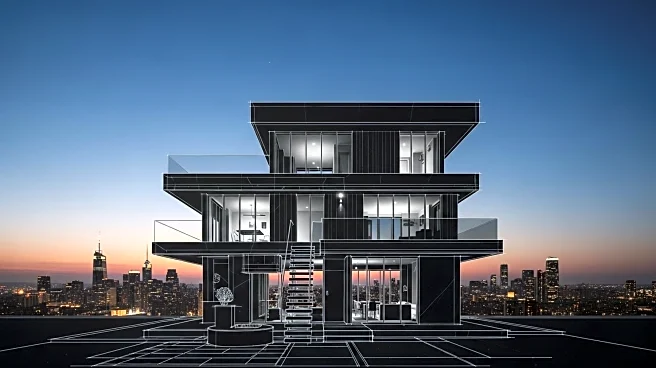What's Happening?
ChatGPT has provided an estimate for the cost of building a house in Myrtle Beach, South Carolina, in 2025. The AI tool outlined a detailed breakdown of expenses, including base build costs ranging from $198,000 to $462,000 for a standard three-bedroom, two-bathroom home. Additional costs include land acquisition, permits, site preparation, and finishes, bringing the total estimated cost to between $346,000 and $1.08 million. The analysis highlights the impact of ongoing economic conditions, such as inflation and tariffs, on construction costs. Realtor Omer Reiner noted that tariffs are affecting new construction as builders face higher prices for materials.
Why It's Important?
The cost of building a home in 2025 is significant due to economic factors like inflation and tariffs, which influence material prices. This has implications for potential homeowners considering whether to build or buy. The housing supply gap, which totaled 3.8 million in 2024, suggests a prolonged period before demand is met, affecting market dynamics. The decision to build a home involves careful consideration of economic conditions, potentially impacting financial planning and investment strategies for individuals and families.
What's Next?
Prospective homeowners may need to weigh the benefits of building versus buying, considering economic forecasts and potential changes in interest rates. Realtor Omer Reiner advises waiting six months to observe trade imbalances and interest rate trends before committing to new construction. This period could provide insights into market conditions, helping buyers make informed decisions. Additionally, the ongoing economic situation may influence builders' sourcing strategies, potentially affecting construction timelines and costs.
Beyond the Headlines
The decision to build a home in 2025 involves more than just financial considerations. It reflects broader economic trends and personal preferences for customization and location. The impact of tariffs and inflation on construction costs highlights the interconnectedness of global trade and local housing markets. As economic conditions evolve, they may shape long-term housing strategies and influence the real estate industry's adaptation to changing consumer needs.








